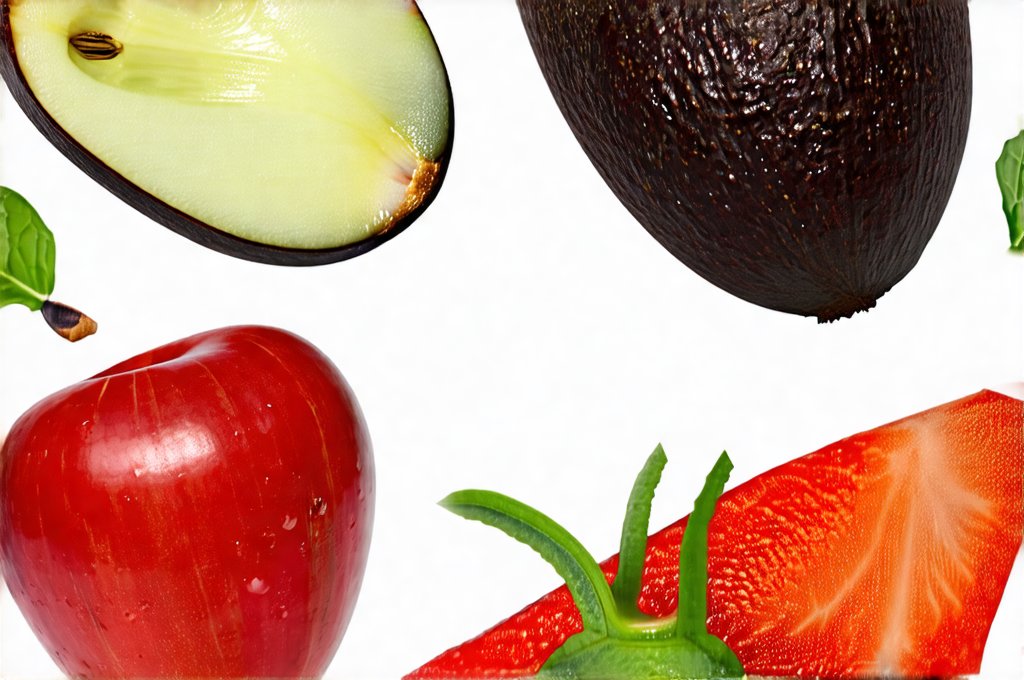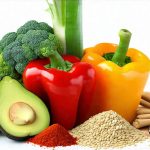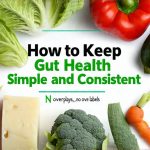The quest for feeling truly nourished – light, full, and balanced – often feels elusive in a world saturated with diet trends and conflicting information. We’re bombarded with promises of quick fixes, restrictive plans, and superfoods that rarely deliver lasting results. The truth is far simpler than many marketing campaigns would lead you to believe: sustainable wellbeing isn’t about eliminating food groups or chasing the latest fad; it’s about building a foundation based on real, whole foods that work with your body, not against it. It’s about understanding how different foods interact within our systems and choosing those that support optimal energy levels, digestive health, and overall vitality.
This approach isn’t restrictive; it’s empowering. By focusing on foundational foods – those naturally nutrient-dense options that have sustained humans for centuries – we can move beyond the cycle of deprivation and cravings and cultivate a more harmonious relationship with food. This means prioritizing quality over quantity, embracing mindful eating practices, and recognizing that nourishment is about so much more than just calorie counting or macronutrient ratios. It’s about fueling your body with foods that provide sustained energy, support cognitive function, and foster a sense of wellbeing from the inside out. The goal isn’t perfection; it’s progress toward a lifestyle centered around genuine nourishment and lasting health. If you struggle with identifying which foods that harm long term, consider focusing on whole food options instead.
The Power of Vegetables: Building Blocks for Vitality
Vegetables are arguably the most important foundational food group we can incorporate into our daily diet. They’re incredibly low in calories yet packed with essential vitamins, minerals, antioxidants, and fiber – all crucial components for optimal health. But beyond their nutritional profile, vegetables offer a unique combination of properties that contribute to feelings of lightness, fullness, and balance. Their high water content helps hydrate the body and promotes satiety while their fiber content slows digestion, preventing blood sugar spikes and crashes which often lead to cravings. Cruciferous vegetables like broccoli, cauliflower, and Brussels sprouts are particularly noteworthy for their detoxifying capabilities and cancer-fighting properties. If you’re noticing foods that cause gas and bloating, consider reducing cruciferous vegetable intake temporarily.
The sheer variety within the vegetable kingdom allows for endless culinary possibilities, making it easy to incorporate them into every meal. From vibrant salads and roasted root vegetables to hearty soups and stir-fries, there’s a vegetable out there to suit every palate and preference. Don’t underestimate the power of frozen vegetables either; they are often just as nutritious as fresh and offer convenience for busy lifestyles. It is also important to consider seasonal eating – choosing produce that is in season not only tastes better but is often more affordable and environmentally sustainable. Understanding how sleep and digestion intertwine can help you make informed food choices, too!
Integrating more vegetables into your diet doesn’t require a complete overhaul. Start small, perhaps by adding a side salad to dinner or swapping out processed snacks for carrot sticks with hummus. Experiment with different cooking methods – steaming, roasting, grilling – to discover what you enjoy most. Ultimately, the key is to find ways to make vegetables a regular and enjoyable part of your daily routine, recognizing them as the foundational building blocks of lasting health and wellbeing.
Lean Proteins: Sustained Energy and Satiety
Lean protein sources are essential for maintaining muscle mass, supporting healthy hormone production, and promoting feelings of fullness. Unlike simple carbohydrates that provide a quick burst of energy followed by a crash, proteins digest more slowly, leading to sustained energy levels throughout the day. This is particularly important if you’re looking to avoid midday slumps or curb cravings for sugary snacks. Examples of lean protein include:
- Poultry (chicken, turkey)
- Fish (salmon, tuna, cod)
- Legumes (beans, lentils)
- Tofu and tempeh
- Greek yogurt
Choosing lean sources is crucial as excessive amounts of saturated fat can negate some of the benefits. Focusing on protein also helps regulate appetite naturally; it signals to your brain that you’re satisfied, reducing the likelihood of overeating. It’s important to note that protein needs vary depending on activity level and individual factors.
A practical approach is to include a source of lean protein with every meal. This could be as simple as adding grilled chicken to a salad, incorporating lentils into your soup, or enjoying a Greek yogurt parfait for breakfast. Pairing protein with fiber-rich carbohydrates – like sweet potatoes or quinoa – further enhances satiety and provides balanced nutrition.
Healthy Fats: Nourishment and Absorption
Healthy fats are often unfairly demonized, but they’re actually vital for overall health and wellbeing. They play a crucial role in hormone production, brain function, nutrient absorption, and cell structure. The key is to focus on unsaturated fats – both monounsaturated and polyunsaturated – while limiting saturated and trans fats. Excellent sources include:
- Avocados
- Nuts and seeds (almonds, walnuts, chia seeds, flaxseeds)
- Olive oil
- Fatty fish (salmon, mackerel)
Healthy fats also contribute to feelings of fullness and satisfaction, making it easier to control portion sizes and avoid impulsive snacking. They enhance the absorption of fat-soluble vitamins – A, D, E, and K – ensuring your body can effectively utilize these essential nutrients. Furthermore, certain healthy fats, like omega-3 fatty acids found in fatty fish, have been linked to reduced inflammation and improved cognitive function.
Incorporating healthy fats into your diet doesn’t require drastic changes. Add avocado slices to your toast, sprinkle nuts and seeds on your salad, or use olive oil for cooking. Be mindful of portion sizes, as even healthy fats are calorie-dense. Aim for a balanced approach, incorporating moderate amounts throughout the day. The goal is not fat avoidance but fat selection – choosing nourishing fats that support your overall health and wellbeing. It’s helpful to understand foods that relax the LES when making dietary choices.
It’s easy to get caught up in restrictive diet cultures that focus on what you should eliminate. However, true nourishment comes from abundance, not deprivation. By building a foundation based on these foundational foods – vegetables, lean proteins, and healthy fats – we can create a sustainable lifestyle that supports optimal health, sustained energy, and a harmonious relationship with food. This isn’t about achieving a specific body type or following rigid rules; it’s about honoring your body’s needs and nourishing yourself from the inside out. The journey toward lasting wellbeing begins not with restriction but with mindful choices, consistent habits, and a deep appreciation for the power of real food. Consider foods that calm the stomach if you experience digestive discomfort after eating. And remember, sometimes it’s okay to acknowledge everyday foods that inflame the lower esophageal sphincter.


















